THE REDBIRD REVIEW
After the Cardinals took a swing – but whiffed – at making the MLB playoffs, I’m left scrounging for nice things to point out about the flock.
News arrived over the online transom on Tuesday: three Cardinals made it to the list of National League finalists for Gold Glove honors in their respective categories. In alphabetical order:
Nolan Arenado, third base.
Brendan Donovan, utility fielder.
Masyn Winn, shortstop.
What’s the criteria? The basics were provided by our friend Matt Snyder of CBS Sports:
There is both a statistical and voting component to Gold Gloves. The statistical component is approximately 25% of the selection criteria. The voting is done by the 30 MLB managers and six coaches per team, and counts as the remaining 75% or so.
Managers and coaches are not allowed to vote for players on their team, and only vote on players in their league. Utility Gold Gloves and team Gold Gloves are awarded using a statistical formula only.
Let’s review the three St. Louis candidates and their chances of winning the prize. Just a warning: this is a Fredbird-free zone. No cheerleading in this space. Just analysis (Boo!)
NOLAN ARENADO
Other finalists: Matt Chapman (Giants) and Ryan McMahon (Rockies.)
Why Arenado would win it: He’s on the short list of the greatest defensive third basemen in major-league history. That’s evidenced by his 10 career Gold Glove awards. Arenado had a down year defensively in 2023 but rebounded this season. Arenado had only one defensive runs saved in 2023 and raised that to six DRS this year. Compared to 2023, he had improved metrics in outs above average (OAA) and fielding run value.
With managers and coaches responsible for the largest percentage of the voting formula, reputation still matters. Arenado is a historically prominent defender, and his name still resonates.
Just remember: what you’re about to read applies only to National League players. The American League awards are separate from the NL awards.
Why Arenado wouldn’t win it: I’ll just lay out the most utilized fielding metrics to see how each third-base finalist rates:
— Defensive runs saved: Matt Chapman ranked first at the position with +17 DRS, McMahon was second (+10 DRS), and Milwaukee’s Joey Ortiz was third with +7. Next comes Arenado who was fourth with +6 defensive runs saved.
— Outs Above Average: Chapman and Ortiz are tied for first at +11. Arenado is third at +9.
— Fielding Run Value: Same deal. Chapman and Ortiz are tied for first and Arenado is third.
— Ultimate Zone Rating: McMahon led the NL at the position, with Chapman finishing second. Other NL third basemen were rated above Arenado: Eugenio Suarez (Diamondbacks), Alec Bohm (Phillies) and Ortiz. Arenado ranked seventh.
The Conclusion: The human vote (75%) is more impactful than the metric evaluations (25%). Arenado has many admirers for his career excellence at third base, and he would score well in the so-called eye test. But If we’re being objective here, and basing our judgment on statistical measures instead of reputation and sentiment, Chapman deserves the honor. And I don’t think it’s close.
————————-
BRENDAN DONOVAN
The utility-fielder category became part of the process for the first time in 2022. Donovan, a rookie, won the award in a perceived upset of teammate Tommy Edman.
Other finalists: Enrique Hernandez (Dodgers) and Jared Triolo (Pirates.)
Why Donovan would win it: I don’t mean to come off as disrespectful here, but I don’t know why he would win this. He had a nice year in the field, logging 817 innings in left field, 421 innings at second base, 53 innings at third base and one inning in right field. Using defensive runs saved as the measure, Donovan played fine defense in left field but was just a tick below average there. His best work came at second base, where he was slightly above average (+1) and scored well in outs above average (+5) and Fielding Run Value (+3.) That said, Donovan wasn’t ranked in the top six of those categories among NL third baseman. Donny did a respectable job as Arenado’s backup at third base, but nothing really stood out.
Why Donovan wouldn’t win it: he was rated above average defensively at only one of the four positions he played, was league average at third base and right field, and a tad below average in left field. It was a different picture when he won the utility trophy in 2022. Based on defensive runs saved, That year Donovan played above-average defense at third base, left field and right field and was league average at second base and first base. In all he had 10 defensive runs saved in 2022 but only one DRS in 2024.
There is even a bigger reason why Donovan wouldn’t win this prize: Triolo and Hernandez were superior defensively. Triolo was a +6 overall in defensive runs saved and was rated above average at second base, third base and right field. The only negative was his below-average (minus 2) defense in 66 innings at shortstop.
Hernandez was a marvel for the Dodgers. Given the day and the situation and his ability to play multiple positions during the same game, you could find Hernandez at first base (96 innings), second base (51), third base (529), shortstop (60), left field (816) and center field (54.) That’s six different positions, and Hernandez was rated above average defensively at four of the positions, and was league average in the other two spots. For the season he did not turn in a below-average fielding performance at any of the six spots and finished with five defensive runs saved overall.
The Conclusion: it’s between Hernandez and Triolo, and I personally believe Hernandez is more worthy of the gold. Why? Because he played more positions than Triolo … and was above average at more positions than Triolo. I appreciate Donovan, but his utility work doesn’t stack up when compared to the other two finalists.
————————–
MASYN WINN
Other finalists: Dansby Swanson (Cubs) and Ezequiel Tovar (Rockies.)
Why Winn would win it: He’s the most dazzling of the three finalists. He turned more heads, made more can-you-believe-that plays, and opponents that were thrown out by the velocity of his rocket arm often paused and stared at the Cardinals rookie – as a sign of respect.
Winn led NL shortstops with +14 defensive runs saved, which was well ahead of Tovar (+9) and Swanson (+7.) I checked Stathead and discovered that the Baseball Reference formula rated Winn No.1 among NL shortstops with 2.4 defensive Wins Above Replacement. (Tovar was second, and Swanson ranked fourth.) Winn was also tops among NL shortstops for most fielding runs.
Despite being sixth among NL shortstops for most innings played this season, Winn finished second in assists (402) and second in double plays (98.) WHat a player, and Winn was only 22 years old this season.
As a side note that has nothing to do with this year’s Gold Glove outcome, please consider this: Winn’s season 2.4 defensive WAR was the best in Cardinals franchise history among shortstops age 22 or younger.
Why Winn wouldn’t win it: He certainly has a strong case, and the way he plays the position is visually striking and leaves quite an impression. But there are many ways to grade shortstop defense at this point in MLB history, and other NL candidates were rated higher than Winn in a few other defensive models …
— Errors: I don’t necessarily trust official scorer rulings, but Winn was charged with 18 fielding errors this season — fourth most among NL shortstops. Swanson was assessed with only five fielding errors with Tovar right near that with eight charged errors.
— Outs Above Average: Swanson was first, Francisco Lindor (Mets) was second, and Tovar was third. Winn, surprisingly ranked seventh at the position in OAA, which primarily is a reflection on a defender’s range. There was nothing wrong with Winn’s range; he was rated in the top 17 percent. It’s just that other shortstops displayed more range to win the Statcast precinct including Swanson (top 1%), Tovar (top 2%) and Lindor (top 2%.)
— Fielding Run Value: Winn was sixth among NL shortstops. Swanson was rated No. 1, and Tovar was fourth.
— Ultimate Zone Rating: Winn was eighth among NL shortstops. He was also sixth in FanGraphs defensive composite.
The Conclusion: The fact that Winn was ranked No. 1 among NL shortstops in defensive runs saved and defensive WAR will certainly bolster his candidacy. And then it comes down to what the NL’s managers and coaches thought of Winn in 2024. He flashed exceptional athleticism, made a bunch of spectacular plays, and should score well in the eye test. Winn is certainly worthy of the award; I just don’t know if the managers and coaches feel the same way. If Winn doesn’t take the guerdon, I won’t be outraged … just a little disappointed. And Swanson (especially) and Tovar did enough to justify receiving the award.
What system do managers and coaches turn to for a reference point? What are the standards? Do they obsess over error totals? Is it defensive wins above replacement and defensive runs saved? Or is it outs above average, UZR or fielding run value? It ain’t easy to navigate the gobbledygook. I suppose we’ll find out when Rawlings announces the winner.
Thanks for reading …
–Bernie
A 2023 inductee into the Missouri Sports Hall of Fame, Bernie has provided informed opinions and perspective on St. Louis sports through his columns, radio shows and podcasts since 1985.
Please check out the new Bernie Miklasz Show channel on YouTube. And thank you for subscribing. Here’s the link: @TheBernieShow
Please follow Bernie on X @b_miklasz and Threads @miklaszb
Stats used in my baseball columns are sourced from FanGraphs, Baseball Reference, Statcast, StatHead, Baseball Savant, Baseball Prospectus, Brooks Baseball Net, and Sports Info Solutions unless otherwise noted.
For the last 36 years Bernie Miklasz has entertained, enlightened, and connected with generations of St. Louis sports fans.
While best known for his voice as the lead sports columnist at the Post-Dispatch for 26 years, Bernie has also written for The Athletic, Dallas Morning News and Baltimore News American. A 2023 inductee into the Missouri Sports Hall of Fame, Bernie has hosted radio shows in St. Louis, Dallas, Baltimore and Washington D.C.
Bernie, his wife Kirsten and their cats reside in the Skinker-DeBaliviere neighborhood of St. Louis.



